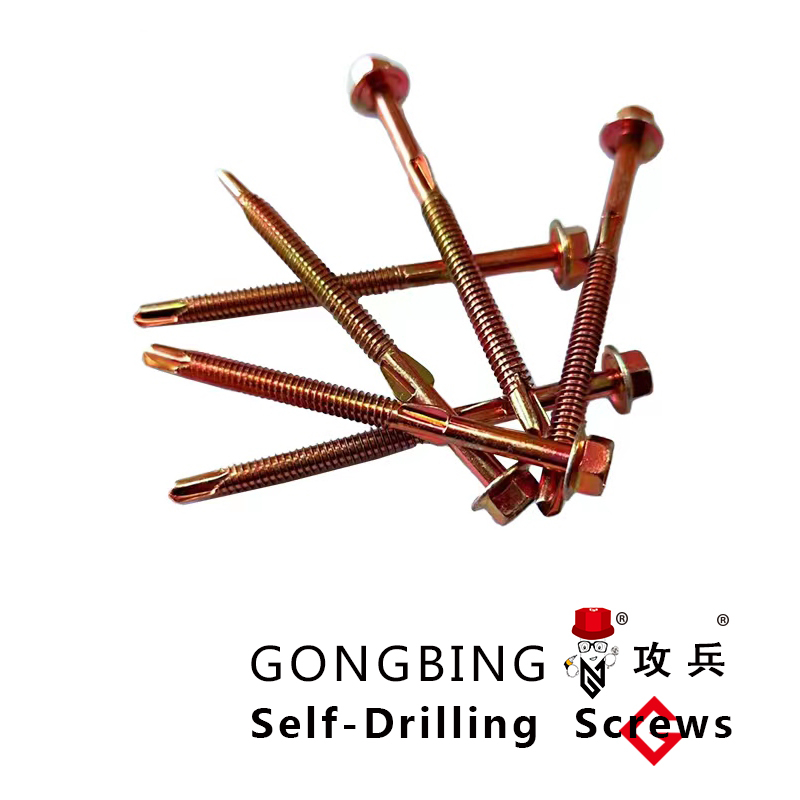chemical bolt anchor
Understanding Chemical Bolt Anchors A Guide to Their Use and Benefits
Chemical bolt anchors are an essential component in the realm of construction and engineering, offering a reliable solution for securing structural elements to various substrates. They are characterized by their ability to provide a strong bond between the anchor and the hole in which it is installed, thanks to the chemical adhesive used in the process. This article explores the function, installation, advantages, and applications of chemical bolt anchors.
What Are Chemical Bolt Anchors?
Chemical bolt anchors consist of a metal bolt or rod that is embedded into a drilled hole, accompanied by a two-part chemical adhesive that fills the void between the bolt and the concrete or substrate. Upon mixing and curing, the adhesive forms a robust bond that significantly enhances the anchor's load-bearing capacity. This method of anchoring is increasingly employed in construction projects, especially where high-strength fixtures are required and traditional mechanical anchors may fail.
How Do They Work?
The installation of a chemical bolt anchor begins with drilling a hole into the substrate, often concrete or masonry. The depth and diameter of the hole depend on the specifications of the anchor being used. Once the hole is prepared, the chemical adhesive is injected into the hole, followed by the insertion of the anchor itself.
The two components of the adhesive typically comprise a resin and a hardener, which must be mixed to activate the bonding process. As the adhesive cures, it expands slightly to fill any gaps in the hole, forming a strong bond around the anchor. The curing time can vary based on the type of adhesive and environmental conditions, but once fully cured, the anchor can withstand considerable loads.
Advantages of Chemical Bolt Anchors
1. High Load Capacity One of the primary advantages of chemical bolt anchors is their ability to handle significant loads. The chemical bond created during installation distributes stress more evenly than traditional mechanical anchoring, making it suitable for applications that require high strength.
chemical bolt anchor

2. Resistance to Vibration Chemical anchors excel in environments with dynamic loads, such as those found in industrial settings. Their design mitigates the risk of loosening that can occur with mechanical anchors under vibration or repeated stress.
3. Versatility Chemical bolt anchors can be used in various substrates, including concrete, brick, and even hollow materials. This versatility allows them to be used in multiple applications, from high-rise buildings to residential homes.
4. Corrosion Resistance Many chemical anchors are designed to be resistant to corrosion, making them ideal for outdoor applications or environments where moisture is present. This characteristic enhances their longevity and reduces maintenance costs over time.
5. Improved Aesthetics Since chemical anchors are often placed deeper into substrates, they create a more streamlined appearance without protruding from surfaces. This feature is particularly advantageous in architectural applications where aesthetics are a concern.
Applications of Chemical Bolt Anchors
Chemical bolt anchors are employed across a wide range of applications. In the construction industry, they secure structural elements such as beams, columns, and machinery. They are favored for anchoring heavy equipment in industrial settings, as they can handle vibration and dynamic loads.
In the realm of civil engineering, chemical anchors secure bridges, tunnels, and retaining walls, contributing to the overall stability of these structures. Additionally, they are used in infrastructural projects such as wind turbines and telecommunications towers, where robust anchoring is crucial for safety and performance.
Conclusion
Chemical bolt anchors represent a significant innovation in fastening technologies, offering numerous benefits that make them an attractive choice for engineers and construction professionals. Their high load capacity, resistance to vibration, and versatility across various substrates make them essential for modern construction practices. As building technologies advance, the role of chemical anchors will likely become even more prominent, ensuring reliability and safety in a multitude of applications. Whether used for heavy-duty purposes or aesthetic projects, chemical bolt anchors are a valuable tool in the construction field, marrying strength with versatility.
-
Weatherproof Plastic Expansion Anchors for OutdoorNewsJun.06,2025
-
Sustainability in the Supply Chain: Eco-Friendly TEK Screws ProductionNewsJun.06,2025
-
Load-Bearing Capacity of External Insulation FixingsNewsJun.06,2025
-
Double Head Bolts: Enhancing Efficiency in Industrial MachineryNewsJun.06,2025
-
Corrosion Resistance in Chipboard Screws: Coatings for Wholesale DurabilityNewsJun.06,2025
-
Butterfly Toggle Bolts : Enhancing Structural ResilienceNewsJun.06,2025
